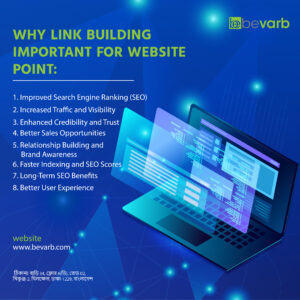Now Reading: Why Is Content Important For Website Ranking
-
01
Why Is Content Important For Website Ranking
Why Is Content Important For Website Ranking

In today’s digital era, website ranking on search engines like Google is a critical factor for online success. The higher a website ranks, the more traffic it attracts, leading to better engagement, conversions, and brand recognition. But what determines these rankings?
While various factors contribute to search engine rankings, content remains the most significant element. This blog post explores why content is essential for website ranking and how businesses can leverage high-quality content to improve their search visibility.
1. Content is the Backbone of SEO
Search Engine Optimization (SEO) is the foundation of website ranking, and content is at its core. Search engines analyze and rank websites based on the relevance and quality of their content.
How Content Impacts SEO:
- Keyword Optimization: Strategic placement of keywords in blog posts, articles, and web pages helps search engines understand the content’s relevance to search queries.
- Backlinks Acquisition: High-quality, informative content attracts backlinks from reputable websites, signaling credibility and authority to search engines.
- Content Freshness: Regularly updating content with new information keeps the website relevant and improves rankings.
- User Engagement Metrics: Well-written content reduces bounce rates, increases dwell time, and encourages interactions, all of which impact rankings positively.
Without valuable content, a website will struggle to achieve high rankings, no matter how optimized its technical aspects are.
2. Content Helps Target the Right Audience
For a website to rank well, it must attract the right audience. Search engines aim to provide users with the most relevant content based on their search queries.
How Content Targets the Right Audience:
- Understanding Search Intent: Content tailored to informational, navigational, transactional, or commercial intent improves rankings.
- Long-Tail Keywords: Using specific, less competitive keywords helps capture niche audiences and increases search visibility.
- Localized Content: For businesses targeting local customers, locally optimized content enhances search rankings in geographical searches.
- Answering User Queries: Content structured around common questions and concerns ranks well on Google’s featured snippets and People Also Ask sections.
A website with well-structured content targeting user intent is more likely to appear at the top of search results.
3. High-Quality Content Enhances User Experience
Google prioritizes websites that offer a positive user experience. Engaging and informative content keeps visitors on the page longer, signaling to search engines that the website is valuable.
Elements of Content that Improve User Experience:
- Readable Formatting: Clear headings, bullet points, and short paragraphs make content more digestible.
- Multimedia Integration: Images, videos, and infographics enhance engagement and reduce bounce rates.
- Internal Linking: Linking to related content keeps visitors engaged and improves website navigation.
- Mobile Optimization: Ensuring content is mobile-friendly improves usability and rankings.
A website that delivers a seamless user experience through well-structured content gains an advantage in search engine rankings.
4. Fresh and Updated Content Signals Relevance
Search engines prioritize websites that regularly update their content. Websites that consistently publish new and updated content remain relevant in search results.
Why Fresh Content Matters:
- Google’s Freshness Algorithm: Google rewards websites that frequently update their content with better rankings.
- Industry Trends and Updates: Keeping content aligned with industry developments improves search visibility.
- Repurposing Old Content: Updating older posts with new data, statistics, and insights boosts rankings.
- Content Diversification: Publishing a mix of blog posts, case studies, and news articles keeps the website dynamic.
A stagnant website with outdated content is likely to lose rankings over time.
5. Content Encourages Backlinks and Social Shares
Backlinks from authoritative websites remain a strong ranking factor. The best way to earn high-quality backlinks is by publishing valuable content that others want to reference and share.
How Content Attracts Backlinks:
- In-Depth Guides and Tutorials: Comprehensive resources are more likely to be linked to by other websites.
- Original Research and Data: Unique statistics and case studies attract backlinks from industry professionals.
- Guest Blogging: Contributing high-quality content to reputable websites generates backlinks and increases authority.
- Engaging Headlines and Stories: Shareable content increases social media traction and backlinks.
Websites with strong backlink profiles often rank higher due to increased credibility and trustworthiness.
6. Content Aligns with Google’s E-E-A-T Guidelines
Google’s ranking algorithms consider Expertise, Experience, Authoritativeness, and Trustworthiness (E-E-A-T) when assessing content quality.
Ways Content Supports E-E-A-T:
- Authoritative Writing: Content backed by industry expertise improves credibility.
- Citing Reliable Sources: Using references from authoritative websites enhances trustworthiness.
- Transparent Author Profiles: Displaying credentials and experience boosts content authenticity.
- User Reviews and Testimonials: Positive user feedback strengthens website authority.
Content that aligns with E-E-A-T guidelines has a better chance of ranking higher in search results.
7. Content Strengthens Internal Linking Strategies
Internal linking helps distribute link equity across a website, improving the ranking potential of different pages.
Benefits of Internal Linking in Content:
- Guides Visitors to Relevant Pages: Increases time spent on the website and reduces bounce rates.
- Improves Crawling and Indexing: Helps search engines understand website structure and context.
- Boosts Page Authority: Passing link juice from high-ranking pages improves rankings for lesser-known pages.
- Encourages Content Exploration: Keeps users engaged and enhances their experience.
A well-executed internal linking strategy strengthens the website’s overall SEO performance.
8. Content Provides Opportunities for Featured Snippets
Google’s featured snippets appear at the top of search results and provide direct answers to user queries. Optimizing content for snippets can significantly boost website visibility and ranking.
How to Optimize Content for Featured Snippets:
- Use Structured Data: Schema markup helps search engines understand content better.
- Answer Questions Directly: Providing concise, clear answers increases the chances of being featured.
- Include Lists and Tables: Content formatted as bullet points or tables performs well in snippets.
- Use Clear Headings: Well-organized content improves readability and snippet eligibility.
Appearing in a featured snippet gives a website a competitive edge in search rankings.
Content is the single most important factor for improving website rankings. From keyword optimization and user engagement to backlink acquisition and E-E-A-T compliance, high-quality content influences every aspect of SEO.
To stay ahead in search rankings, businesses must invest in content that is informative, engaging, and regularly updated. By implementing a strong content strategy, websites can achieve higher rankings, increased traffic, and long-term online success.
If your goal is to rank higher on search engines, start by focusing on content—it’s the foundation of digital visibility and success.
























